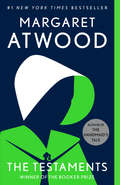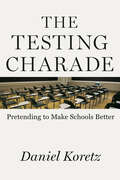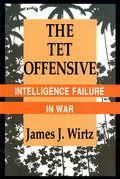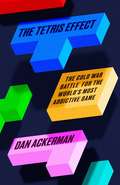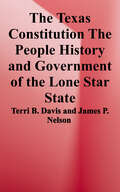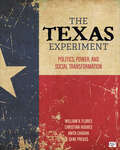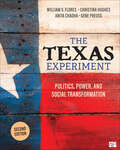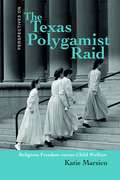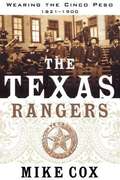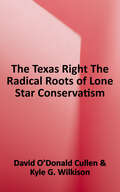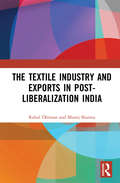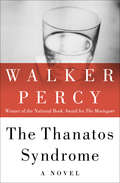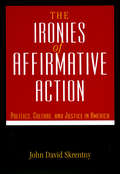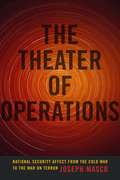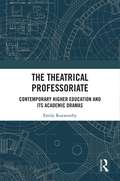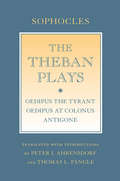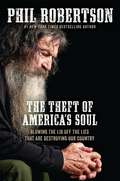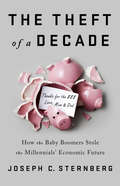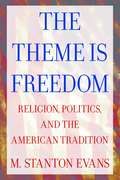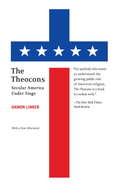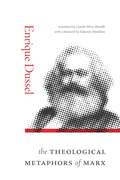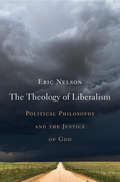- Table View
- List View
The Testaments: A Novel
by Margaret AtwoodNEW YORK TIMES BESTSELLER • WINNER OF THE BOOKER PRIZE • A modern masterpiece that "reminds us of the power of truth in the face of evil&” (People)—and can be read on its own or as a sequel to Margaret Atwood&’s classic, The Handmaid&’s Tale. &“Atwood&’s powers are on full display&” (Los Angeles Times) in this deeply compelling Booker Prize-winning novel, now updated with additional content that explores the historical sources, ideas, and material that inspired Atwood. More than fifteen years after the events of The Handmaid's Tale, the theocratic regime of the Republic of Gilead maintains its grip on power, but there are signs it is beginning to rot from within. At this crucial moment, the lives of three radically different women converge, with potentially explosive results. Two have grown up as part of the first generation to come of age in the new order. The testimonies of these two young women are joined by a third: Aunt Lydia. Her complex past and uncertain future unfold in surprising and pivotal ways. With The Testaments, Margaret Atwood opens up the innermost workings of Gilead, as each woman is forced to come to terms with who she is, and how far she will go for what she believes.
The Testing Charade: Pretending to Make Schools Better
by Daniel KoretzFor decades we’ve been studying, experimenting with, and wrangling over different approaches to improving public education, and there’s still little consensus on what works, and what to do. The one thing people seem to agree on, however, is that schools need to be held accountable—we need to know whether what they’re doing is actually working. But what does that mean in practice? High-stakes tests. Lots of them. And that has become a major problem. Daniel Koretz, one of the nation’s foremost experts on educational testing, argues in The Testing Charade that the whole idea of test-based accountability has failed—it has increasingly become an end in itself, harming students and corrupting the very ideals of teaching. In this powerful polemic, built on unimpeachable evidence and rooted in decades of experience with educational testing, Koretz calls out high-stakes testing as a sham, a false idol that is ripe for manipulation and shows little evidence of leading to educational improvement. Rather than setting up incentives to divert instructional time to pointless test prep, he argues, we need to measure what matters, and measure it in multiple ways—not just via standardized tests. Right now, we’re lying to ourselves about whether our children are learning. And the longer we accept that lie, the more damage we do. It’s time to end our blind reliance on high-stakes tests. With The Testing Charade, Daniel Koretz insists that we face the facts and change course, and he gives us a blueprint for doing better.
The Tet Offensive: Intelligence Failure in War (Cornell Studies in Security Affairs)
by James J. WirtzIn this account of one of the worst intelligence failures in Americanhistory, James J. Wirtz explains why U.S. forces were surprised by the North Vietnamese Tet Offensive in 1968. Wirtz reconstructs the turning point of the Vietnam War in unprecedented detail. Drawing upon Vietcong and recently declassified U.S. sources, he is able to trace the strategy and unfolding of the Tet campaign as well as the U.S. response.
The Tetris Effect: The Cold War Battle for the World's Most Addictive Game
by Dan Ackerman21 February 1989. Three men fly into Moscow, representing software giants from Britain, America, and Japan. Each of them is determined to undercut the others in order to secure a technology so powerfully addictive it has brought the government department that created it to a standstill. In a country on the brink of seismic change, where spycraft is about to give way to cut-throat capitalism, Tetris has become the grand prize. Featuring corporate espionage, unmarked government organizations, courtroom drama and international conspiracies, the origin of the world&’s most popular video game is a gripping, fast-paced thriller of the highest order. Not only this, but it is also the tale of a one-in-a-million software start-up – a unique example of an idea, a product, and an era coming together at exactly the right moment. Tetris was perfectly (if accidentally) crafted to hit primal triggers in our minds and in Ackerman&’s hands its story is unputdownable.
The Texas Connection: The Assassination of John F. Kennedy
by Craig I. ZirbelThe explosive New York Times bestseller that sheds new light on JFK's assassination. As it convincingly puts together the pieces of the Kennedy assassination puzzle in a new way, this gripping account studies the possible involvement of Vice President Lyndon Johnson in a sinister plot to eliminate the one man who stood between him and the highest office in the land.
The Texas Constitution: The People, History, and Government of the Lone Star State
by Terri B. Davis James P. NelsonThis is a book written for university political science classes. It focuses on the Texas constitution, its history, and how it functions in Texas politics. It discusses the constitution's context in American federalism and the role of elections, political parties, and interest groups in the state and gives much attention to the three branches of Texas government created by the Texas Constitution of 1876. <p><p>The book provides foundations for understanding the current Texas Constitution and some of the unique features of Texas government. Historically, the Constitution was written in response to the state's experience with Reconstruction and the governorship of Edmund Davis, and a political culture that embraced and continues to embrace rugged individualism and a strong belief in limited government. Today, the legislative, executive, and judicial branches of Texas government retain the basic structures created for them by the Constitution of 1876, as well as additional features added through constitutional amendments and state statutes.
The Texas Experiment: Politics, Power, and Social Transformation
by Christina Hughes William V. Flores Anita Chadha Gene PreussThe Texas Experiment: Politics, Power, and Social Transformation provides students with an all-encompassing view of Texas government. The book brings together the historical and the contemporary, the political and the personal, to walk students through the state′s past, present, and future. Through its rich historical narrative that tells the unvarnished story of how Texas came to be, to its depictions of the processes and structure of Texas government, and finally with its shifting demographics, we learn that the soul of Texas is multicultural, diverse, and thriving. The Texas Experiment empowers students to develop their social and personal responsibility so that they can all be a force of positive change in Texas′s vibrant culture. This title is accompanied by a complete teaching and learning package. Contact your SAGE representative to request a demo. Learning Platform / Courseware SAGE Vantage is an intuitive learning platform that integrates quality SAGE textbook content with assignable multimedia activities and auto-graded assessments to drive student engagement and ensure accountability. Unparalleled in its ease of use and built for dynamic teaching and learning, Vantage offers customizable LMS integration and best-in-class support. It’s a learning platform you, and your students, will actually love. Learn more. Assignable Video with Assessment Assignable video (available in SAGE Vantage) is tied to learning objectives and curated exclusively for this text to bring concepts to life. Watch a sample video now. LMS Cartridge: Import this title’s instructor resources into your school’s learning management system (LMS) and save time. Don’t use an LMS? You can still access all of the same online resources for this title via the password-protected Instructor Resource Site. Learn more.
The Texas Experiment: Politics, Power, and Social Transformation
by Christina Hughes William V. Flores Anita Chadha Gene PreussThe Texas Experiment: Politics, Power, and Social Transformation provides students with an all-encompassing view of Texas government. The book brings together the historical and the contemporary, the political and the personal, to walk students through the state′s past, present, and future. Through its rich historical narrative that tells the unvarnished story of how Texas came to be, to its depictions of the processes and structure of Texas government, and finally with its shifting demographics, we learn that the soul of Texas is multicultural, diverse, and thriving. The Texas Experiment empowers students to develop their social and personal responsibility so that they can all be a force of positive change in Texas′s vibrant culture. This title is accompanied by a complete teaching and learning package. Contact your SAGE representative to request a demo. Learning Platform / Courseware SAGE Vantage is an intuitive learning platform that integrates quality SAGE textbook content with assignable multimedia activities and auto-graded assessments to drive student engagement and ensure accountability. Unparalleled in its ease of use and built for dynamic teaching and learning, Vantage offers customizable LMS integration and best-in-class support. It’s a learning platform you, and your students, will actually love. Learn more. Assignable Video with Assessment Assignable video (available in SAGE Vantage) is tied to learning objectives and curated exclusively for this text to bring concepts to life. Watch a sample video now. LMS Cartridge: Import this title’s instructor resources into your school’s learning management system (LMS) and save time. Don’t use an LMS? You can still access all of the same online resources for this title via the password-protected Instructor Resource Site. Learn more.
The Texas Experiment: Politics, Power, and Social Transformation
by William V. Flores Christina Hughes Anita Chadha Gene PreussThe Texas Experiment: Politics, Power, and Social Transformation provides an all-encompassing view of Texas government. Authors William V. Flores, Christina Hughes, Anita Chadha, and Gene Preuss bring together the historical and the contemporary, the political and the personal, to walk students through the state′s past, present, and future. Through the book′s rich historical narrative that tells the unvarnished story of how Texas came to be, depictions of the processes and structure of Texas government, and finally, insights on shifting demographics, we learn that the soul of Texas is multicultural, diverse, and thriving. The Second Edition has been updated through the state′s 2023 legislative cycle and what it means for those living in Texas.
The Texas Experiment: Politics, Power, and Social Transformation
by William V. Flores Christina Hughes Anita Chadha Gene PreussThe Texas Experiment: Politics, Power, and Social Transformation provides an all-encompassing view of Texas government. Authors William V. Flores, Christina Hughes, Anita Chadha, and Gene Preuss bring together the historical and the contemporary, the political and the personal, to walk students through the state′s past, present, and future. Through the book′s rich historical narrative that tells the unvarnished story of how Texas came to be, depictions of the processes and structure of Texas government, and finally, insights on shifting demographics, we learn that the soul of Texas is multicultural, diverse, and thriving. The Second Edition has been updated through the state′s 2023 legislative cycle and what it means for those living in Texas.
The Texas Polygamist Raid: Religious Freedom versus Child Welfare
by Katie MarsicoThe book provides comprehensive information on the Texas polygamist raid and the differing perspectives accompanying it.
The Texas Rangers, Volume I: Wearing the Cinco Peso, 1821-1900
by Mike CoxIn this book, Mike Cox takes readers through the major social and political movements of the Texas territory and into its statehood and shows how the Rangers were a defining force in the stabilization and the creation of Texas. From Stephen Austin in the early days through the Civil War, the first eighty years of the Texas Rangers were nothing less than phenomenal, and the efforts put forth in those days set the foundation for the Texas Rangers who keep Texas safe today.
The Texas Right: The Radical Roots of Lone Star Conservatism (Elma Dill Russell Spencer Series In The West And Southwest Ser.)
by David O'Donald Cullen Kyle G. WilkisonIn The Texas Right: The Radical Roots of Lone Star Conservatism, some of our most accomplished and readable historians push the origins of present-day Texas conservatism back to the decade preceding the twentieth century. They illuminate the initial factors that began moving Texas to the far right, even before the arrival of the New Deal. By demonstrating that Texas politics foreshadowed the partisan realignment of the erstwhile Solid South, the studies in this book challenge the traditional narrative that emphasizes the right-wing critique of modern America voiced by, among others, radical conservatives of the state's Democratic Party, beginning in the 1930s. As the contributors show, it is impossible to understand the Jeffersonian Democrats of 1936, the Texas Regular movement of 1944, the Dixiecrat Party of 1948, the Shivercrats of the 1950s, state members of the John Birch Society, Texas members of Young Americans for Freedom, Reagan Democrats, and most recently, even, the Tea Party movement without first understanding the underlying impulses that produced their formation.
The Textile Industry and Exports in Post-Liberalization India
by Rahul DhimanThis book is a comprehensive examination of the Indian textile industry and the various determinants affecting its export performance, trends in labour, and capital productivity in the post-liberalization years. Employing 45 million people, including skilled and unskilled workers, the Indian textile and clothing industry occupies a significant position in the Indian economy in terms of industrial production, employment, and exports. This work traces the growth and expansion of this industry in the post-reform period and studies its contributions to the economic development of the nation. It discusses global trade agreements, India’s share in international exports, and its major trading partners across the globe including the USA, UK, UAE, Germany, China. It also provides recommendations to Indian policy makers for a possible improvement in the textile exports across the globe. The Textile Industry and Exports in Post-Liberalization India will be of interest to students and researchers of politics and international relations, economics, development studies, labour economics, sociology and social policy, and South Asian studies.
The Thanatos Syndrome: A Novel (Narrativa Mondadori Ser.)
by Walker PercyPercy&’s stirring sequel to Love in the Ruins follows Tom More&’s redemptive mission to cure the mysterious ailment afflicting the residents of his hometownDr. Tom More returns to his parish in Louisiana determined to live a simpler life. Fresh out of prison after getting caught selling uppers to truck drivers, he wants nothing more than to live &“a small life.&” But when everyone in town begins acting strangely—from losing their sexual inhibitions to speaking only in blunt, truncated sentences—More, with help from his cousin Lucy Lipscomb, takes it upon himself to reveal what and who is responsible. Their investigation leads them to the highest seats of power, where they discover that a government conspiracy is poised to rob its citizens of their selves, their free will, and ultimately their humanity.
The The Ironies of Affirmative Action: Politics, Culture, and Justice in America (Morality and Society Series)
by John D. SkrentnyAffirmative action has been fiercely debated for more than a quarter of a century, producing much partisan literature, but little serious scholarship and almost nothing on its cultural and political origins. The Ironies of Affirmative Action is the first book-length, comprehensive, historical account of the development of affirmative action. Analyzing both the resistance from the Right and the support from the Left, Skrentny brings to light the unique moral culture that has shaped the affirmative action debate, allowing for starkly different policies for different citizens. He also shows, through an analysis of historical documents and court rulings, the complex and intriguing political circumstances which gave rise to these controversial policies. By exploring the mystery of how it took less than five years for a color-blind policy to give way to one that explicitly took race into account, Skrentny uncovers and explains surprising ironies: that affirmative action was largely created by white males and initially championed during the Nixon administration; that many civil rights leaders at first avoided advocacy of racial preferences; and that though originally a political taboo, almost no one resisted affirmative action. With its focus on the historical and cultural context of policy elites, The Ironies of Affirmative Action challenges dominant views of policymaking and politics.
The Theater of Operations: National Security Affect from the Cold War to the War on Terror
by Joseph MascoHow did the most powerful nation on earth come to embrace terror as the organizing principle of its security policy? In The Theater of Operations, Joseph Masco locates the origins of the present-day U.S. counterterrorism apparatus in the Cold War's "balance of terror." He shows how, after the attacks of 9/11, the U.S. global War on Terror mobilized a wide range of affective, conceptual, and institutional resources established during the Cold War to enable a new planetary theater of operations. Tracing how specific aspects of emotional management, existential danger, state secrecy, and threat awareness have evolved as core aspects of the American social contract, Masco draws on archival, media, and ethnographic resources to offer a new portrait of American national security culture. Undemocratic and unrelenting, this counterterror state prioritizes speculative practices over facts, and ignores everyday forms of violence across climate, capital, and health in an unprecedented effort to anticipate and eliminate terror threats--real, imagined, and emergent.
The Theatrical Professoriate: Contemporary Higher Education and Its Academic Dramas
by Emily RoxworthyThis book argues that today’s professoriate has become increasingly theatrical, largely as a result of neoliberal policies in higher education, but also in response to an anti-intellectual scrutiny that has become pervasive throughout the Western world. The Theatrical Professoriate: Contemporary Higher Education and Its Academic Dramas examines how the Western professoriate increasingly finds itself enacting command performances that utilize scripting, characterization, surrogation, and spectacle—the hallmarks of theatricality—toward neoliberal ends. Roxworthy explores how the theatrical nature of today’s professoriate and the resultant glut of performances about academia on stage and screen have contributed to a highly ambivalent public fascination with academia. She further documents the "theatrical turn" witnessed in American higher education, as academic institutions use performance to intervene in the diversity issues and disciplinary disparities fueled by neoliberalism. By analyzing academic dramas and their audience reception alongside theoretical approaches, the author reveals how contemporary academia drives the professoriate to perform in what seem like increasingly artificial ways. Ideal for practitioners and students of education, ethnic, and science studies, The Theatrical Professoriate deftly intervenes in Performance Studies’ still-unsettled debates over the differential impact of live versus mediated performances.
The Theban Plays: "Oedipus the Tyrant"; "Oedipus at Colonus"; "Antigone"
by Sophocles Peter J. Ahrensdorf Thomas L. PangleThe timeless Theban tragedies of Sophocles--Oedipus the Tyrant, Oedipus at Colonus, and Antigone--have fascinated and moved audiences and readers across the ages with their haunting plots and their unforgettable heroes and heroines. Now, following the best texts faithfully, and translating the key moral, religious, and political terminology of the plays accurately and consistently, Peter J. Ahrensdorf and Thomas L. Pangle allow contemporary readers to study the most literally exact reproductions of precisely what Sophocles wrote, rendered in readily comprehensible English.These translations enable readers to engage the Theban plays of Sophocles in their full, authentic complexity, and to study with precision the plays' profound and enduring human questions. In the preface, notes to the plays, and introductions, Ahrensdorf and Pangle supply critical historical, mythic, and linguistic background information, and highlight the moral, religious, political, philosophic, and psychological questions at the heart of each of the plays. Even readers unfamiliar with Greek drama will find what they need to experience, reflect on, and enjoy these towering works of classical literature.
The Theft of America’s Soul: Blowing the Lid Off the Lies That Are Destroying Our Country
by Phil RobertsonIt’s time to take back what the devil has stolen and put God back into our culture.Phil Robertson, patriarch of A&E’s Duck Dynasty and one of the most recognized voices of conservative Christianity in America, believes that little by little, generation by generation, America has allowed the lines of morality, decency, and virtue to be erased. Our values have disappeared as we began to believe lies—such as that God is dead, truth is relative, and unity is impossible—that have brought discord, division and protest. But Phil also believes that things can change.Writing with captivating storytelling and unflinching honesty, Phil shows how to make America a God-honoring nation once more: by dropping the ten central lies that rule our day and taking up the ten truths that will bring peace of mind, harmony, and prosperity back to our country. The Theft of America’s Soul is a prophetic wake-up call for all who desire to see our nation thrive. And it is also an invitation to experience the life-giving, peace-filling, wholly-transforming love of God.
The Theft of a Decade: How the Baby Boomers Stole the Millennials' Economic Future
by Joseph C. SternbergA Wall Street Journal columnist delivers a brilliant narrative of the mugging of the millennial generation-- how the Baby Boomers have stolen the millennials' future in order to ensure themselves a comfortable presentThe Theft of a Decade is a contrarian, revelatory analysis of how one generation pulled the rug out from under another, and the myriad consequences that has set in store for all of us. The millennial generation was the unfortunate victim of several generations of economic theories that made life harder for them than it was for their grandparents. Then came the crash of 2008, and the Boomer generation's reaction to it was brutal: politicians and policy makers made deliberate decisions that favored the interests of the Boomer generation over their heirs, the most egregious being over the use of monetary policy, fiscal policy and regulation. For the first time in recent history, policy makers gave up on investing for the future and instead mortgaged that future to pay for the ugly economic sins of the present. This book describes a new economic crisis, a sinister tectonic shift that is stealing a generation's future.
The Theme Is Freedom: Religion, Politics, and the American Tradition
by M. Stanton EvansIn The Theme Is Freedom, readers will be challenged on nearly every concept they've learned in history classes from elementary school to college: that our liberties stem from secular doctrines; that religious absolutes endanger freedom; and that the Bill of Rights created a "wall of separation" between religion and our public institutions.
The Theocons
by Damon LinkerGeorge W. Bush has gone out of his way to blur the line between religion and politics in America—this is acknowledged by his strongest supporters no less than by his most strident critics. The most common explanation of the president’s religious agenda points to rise of evangelical Protestantism. Yet as Damon Linker demonstrates in his groundbreakingbook, an exclusive focus on the role of evangelicals misses the heart of the story. At its core, the Bush administration’s overt religiosity represents the triumph of an ideological movement that for the past several decades has devoted itself to fashioning a theocratic governing philosophy for the United States—a governing philosophy rooted in Roman Catholicism. Led by Father Richard John Neuhaus, this group of “theoconservatives” has actively sought to roll back the division of church and state in American life. The election of 2000 brought the theocons to the peak of political power and influence in Washington. Their ideas inspire the most controversial and divisive policies of the Bush administration—policies whose ultimate goal is nothing less than the end of secular politics in America.
The Theological Metaphors of Marx
by Enrique DusselIn The Theological Metaphors of Marx, Enrique Dussel provides a groundbreaking combination of Marxology, theology, and ethical theory. Dussel shows that Marx unveils the theology of capitalism in his critique of commodity fetishization. Capitalism constitutes an idolatry of the commodity that undergirds the capitalist expropriation of labor. Dussel examines Marx’s early writings on religion and fetishism and proceeds through what Dussel refers to as the four major drafts of Capital, ultimately situating Marx’s philosophical, economic, ethical, and historical insights in relation to the theological problems of his time. Dussel notes a shift in Marx’s underlying theological schema from a political critique of the state to an economic critique of the commodity fetish as the Devil, or anti-God, of modernity. Marx’s thought, impact, and influence cannot be fully understood without Dussel’s historic reinterpretation of the theological origins and implications of Marx’s critiques of political economy and politics.
The Theology of Liberalism: Political Philosophy and the Justice of God
by Eric NelsonModern liberal political philosophy is closely associated with post-1945 secularism. But Eric Nelson contends that the liberal tradition founded by John Rawls is an unwitting outgrowth of ancient theological debates about justice and evil. When we understand this, we can better untangle the knotted strands of liberal political thought.
